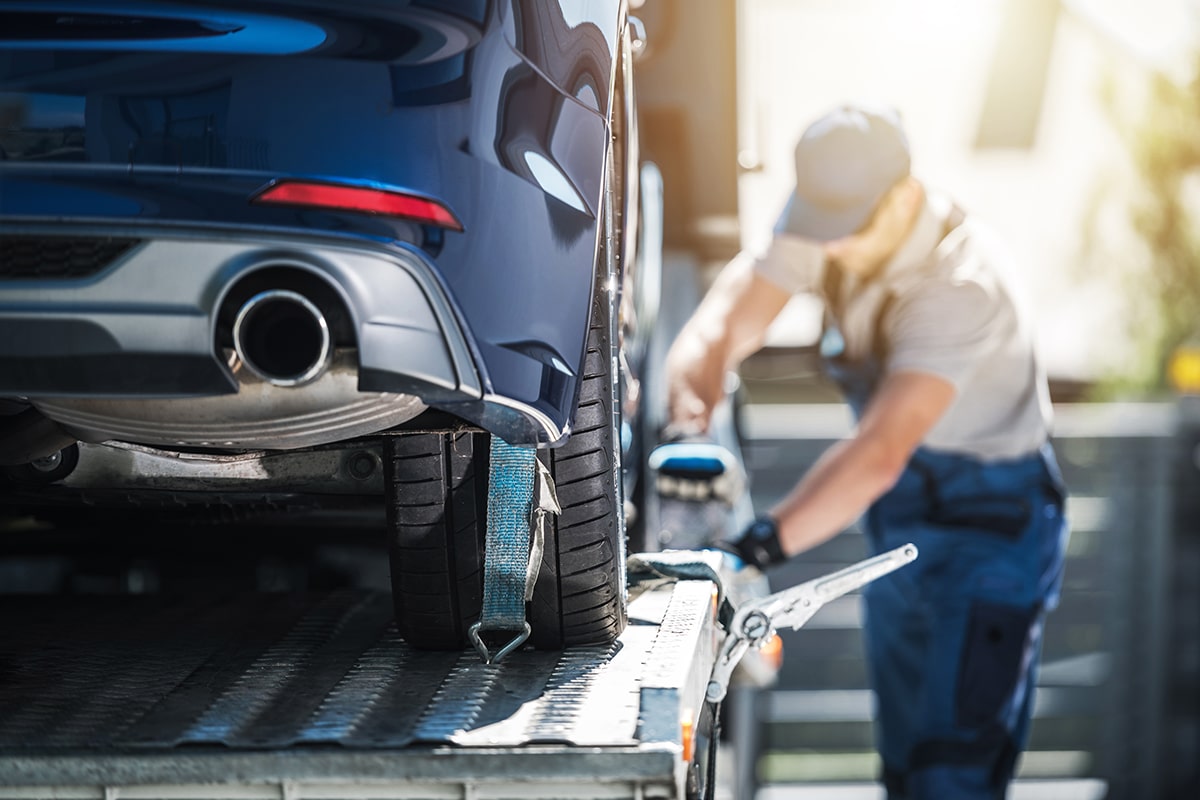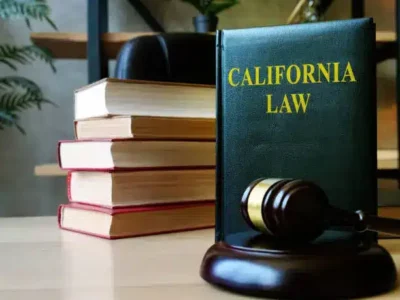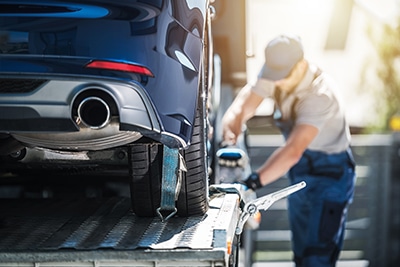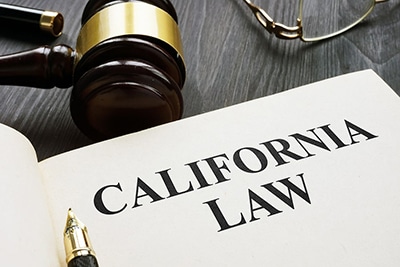
Facing vehicle repossession can be a stressful experience. But understanding car repossession laws in California can be crucial to protect your rights and navigate the process with confidence. In this comprehensive guide, we will explore the ins and outs of car repossession laws in California, the role of repossession agents, and the various legal remedies and protections available to you. Empower yourself with knowledge and take control of your financial future.
California Repossession Laws Overview
California repossession laws, also known as California repossession law, are designed to protect both lenders and borrowers in the event of a vehicle repossession. These laws outline the rights and responsibilities of all parties involved, including repossession agents, who are tasked with locating and repossessing vehicles on behalf of lenders or legal owners. Gaining knowledge of these laws can facilitate a smooth and fair repossession process.
In California, the repossession process is typically initiated when a borrower violates certain conditions of their loan or lease agreement, such as defaulting on a loan or missing insurance payments. The regulations pertaining to repossession are outlined in business, vehicle, and government codes, and they apply to situations where car payments are not made on time. Understanding these laws can help you navigate the repossession process more efficiently and safeguard your rights.
When Can a Vehicle Be Repossessed in California?
In California, a vehicle can be repossessed if the borrower fails to meet their loan obligations or fails to make insurance payments. Repossession can take place without prior notification if the borrower fails to abide by the loan or lease agreement.
Preventing repossession requires strict adherence to the loan agreement conditions and maintaining open communication with the lender.
Defaulting on a Loan
One of the primary reasons for vehicle repossession in California is defaulting on a loan. If a loan payment is not made on time, repossession may occur, even if the payment is only one day late. Repossession agents are permitted to take vehicles parked on the street or in a public parking lot, but they cannot enter a locked property or gated community without permission.
The consequences of repossession can have a detrimental impact on your credit and finances, including increased interest rates and difficulty obtaining future loans.
Missed Insurance Payments
Another circumstance that can lead to repossession in California is missed insurance payments. Failing to make insurance payments on time may result in repossession.
If insurance payments are not received within a 90-day grace period, the insurer may take the following actions:
- Terminate coverage
- Result in a lapse in coverage
- Increase rates
- Revoke license
Thus, timely payments are necessary to maintain insurance coverage and prevent repossession.
The Role of Repossession Agents in California
In California, repossession agents significantly contribute to the repossession process, tasked with locating and repossessing vehicles for the lender or legal owner. These agents are subject to specific licensing requirements and regulations, ensuring that they operate within the boundaries of state and federal legislation.
Repossession agents are required to follow certain guidelines and restrictions during the repossession process, safeguarding borrowers’ rights and maintaining transparency.
Licensing Requirements for Repossession Agents
In order to operate legally in California, repossession agents and their employees must be licensed and regulated by the Bureau of Security and Investigative Services (BSIS). This licensing ensures that repossession agents are properly trained and knowledgeable about the legal requirements and restrictions governing vehicle repossession.
Verifying the license of a repossession agency can be done online or by contacting the BSIS at (916) 322-4000.
Types of Individuals Authorized to Repossess Vehicles
The individuals authorized to repossess vehicles in California include repossession agencies, qualified managers, and agents. These individuals must be licensed by the State’s Bureau of Security and Investigative Services (BSIS) in order to be compliant with all regulations.
Note that bank employees, financial lenders, or those employed by the legal owner of the vehicle aren’t required to have a repossession agency license in California.
What Repossession Agents Can and Cannot Do
Repossession agents in California are authorized to repossess vehicles after one delinquent loan payment or missed insurance payments. However, they must adhere to certain guidelines and restrictions during the repossession process, such as refraining from entering private buildings without permission, avoiding any breach of the peace, and respecting individuals’ property.
Being aware of these allowed and forbidden actions can assist in protecting your rights and fostering a just repossession process.
Permitted Actions
Repossession agents are allowed to take vehicles from publicly accessible places, such as streets and public parking lots, but they cannot enter private buildings or secured areas without permission. This means that if your vehicle is parked on the street or in a publicly accessible parking lot, a repossession agent can legally take possession of it.
However, they must not enter private property without the consent of the property owner or disturb the peace by threatening or using violence.
Prohibited Actions
In addition to the restrictions on where repossession agents can take vehicles, there are also actions that they are not allowed to take during the repossession process. These prohibited actions include threatening, employing force, or causing damage to personal property.
By understanding and being aware of these prohibited actions, you can better protect your rights and ensure that the repossession process is carried out legally and fairly.
Post-Repossession Notices and Procedures
Once a vehicle has been repossessed, there are certain post-repossession notices and procedures that must be followed in order to protect consumers’ rights and ensure transparency. These procedures involve:
- Sending specific notices to the borrower
- Detailing the amounts due
- Providing the payment location
- Explaining the vehicle retrieval process
Familiarity with post repossession notice procedures can enhance your navigation through the repossession process and protect your rights.
Notice Requirements
After repossessing a vehicle in California, the lender is required to send specific notices to the borrower. These notices provide important information about the repossession process, such as the amounts due, payment location, and vehicle retrieval process.
Knowledge of these written notice requirements helps protect your rights and provides you with the necessary information to reclaim your vehicle or settle any outstanding balances.
Personal Property Retrieval
If you have personal property in the repossessed vehicle, the repossession agency must inventory any personal effects found in the vehicle and store them for a minimum of 60 days. This allows you the opportunity to retrieve your personal property within that time frame, ensuring that your belongings are not lost or damaged during the repossession process.
To coordinate the retrieval of personal property, you should contact the repossession agency or a repossession company.
Reinstating or Redeeming Your Vehicle After Repossession
If your vehicle has been repossessed, you may have the option to reinstate or redeem your vehicle, depending on the terms of your loan agreement and California law. Reinstating your vehicle involves catching up on past due payments and fees, while redeeming your vehicle requires paying off the entire loan balance and obtaining the vehicle title.
Familiarity with the reinstatement and redemption processes can guide you to the best course of action for your situation.
Reinstatement Process
In order to reinstate your vehicle after repossession in California, you will need to pay any past due amounts and related repossession/storage costs. This may involve contacting your lender to discuss your specific options and requirements for reinstatement.
Note that the right to reinstate the contract is conditional, generally limited to once a year and a maximum of twice during the loan term.
Redemption Process
The process for redeeming a vehicle after repossession in California involves settling the full loan balance and acquiring the vehicle title. This typically requires contacting your lender to discuss your specific requirements and procedures for redemption.
Keep in mind that redeeming your vehicle may not be possible if you have already reinstated your loan once in the past 12 months or twice during the loan’s duration.
Impact of Repossession on Credit and Finances
Repossession can have a significant impact on your credit score and overall financial health. Here are some key points to consider.
- A car repossession will remain on your credit report for a period of 7 years.
- This can make it more difficult for you to obtain loans or credit in the future.
- The impact of repossession on your credit score will depend on your overall credit history and any other negative marks present on your credit report.
Furthermore, if your vehicle is sold at auction after repossession and the proceeds do not cover the remaining loan balance, you may be liable for a deficiency balance. The balance includes:
- Penalties
- Fees
- Interest
- Any costs from repossession and sale
- Any remaining loan balance not handled by the sale
This can further exacerbate your financial difficulties and make it even more challenging to recover from the repossession.
Alternatives to Repossession and Preventive Measures
If you are facing the possibility of vehicle repossession, there are several alternatives and preventive measures you can take to avoid repossession and protect your credit. These options include negotiating with lenders, refinancing the loan, or selling the vehicle.
Exploring these alternatives and proactively addressing your financial situation could help avoid repossession and its associated negative consequences.
Negotiating with Lenders
One of the most effective ways to avoid repossession is to communicate with your lender and explore options such as modified payment plans or deferrals. Lenders are often willing to work with borrowers who are struggling to make payments, as the repossession process can be costly and time-consuming for them.
By maintaining open communication with your lender and being proactive in addressing any financial challenges, you can potentially avoid repossession and protect your credit.
Refinancing the Loa
Another option for avoiding repossession is to refinance your loan with a different lender. Refinancing can provide more favorable terms, such as lower interest rates or extended repayment periods, which can make it easier for you to make your monthly payments.
Before proceeding with refinancing, confirm that you can afford the new loan and that the associated fees and costs are justifiable. Researching lenders, comparing loan terms, and submitting an application are all necessary steps in the refinancing process.
Selling the Vehicle
Selling your vehicle can be another way to avoid repossession, especially if you have equity in the vehicle or can sell it for more than the outstanding loan balance. However, you should be aware that selling the vehicle may not completely eliminate your financial obligations, as you may still be liable for any remaining loan balance.
Consultation with your car loan lender and their approval before selling the vehicle through a private sale are key steps in ensuring you can meet your remaining car loan obligations.
Legal Remedies and Protection Against Unlawful Repossession
Beyond the various alternatives and preventive measures to avoid repossession, awareness of your legal rights and protections for unlawful repossession is essential. California law provides several legal remedies and protections for consumers who have been the victim of unlawful repossession, including the right to redeem the vehicle contract and/or the right to reinstate the contract.
By understanding your legal rights, you can ensure that you are protected and have access to the appropriate legal remedies if necessary.
Unlawful Repossession
Unlawful repossession occurs when a repossession agent takes a vehicle without adhering to the appropriate legal protocols or without the property owner’s authorization. If you believe that your vehicle has been unlawfully repossessed, there are legal remedies available to you, such as the right to redeem the vehicle contract and/or the right to reinstate the contract.
Consulting with a wrongful repossession lawyer can be advantageous in such situations, as they can offer legal counsel and aid in navigating the legal process.
Legal Assistance and Consultation
Seeking legal assistance and consultation is an important step in navigating the repossession process and protecting your rights. A legal professional can help you with the following:
- Understand your rights
- Negotiate with lenders
- Safeguard your interests
- Avert wrongful repossession
- Explore alternatives to repossession
Should you suspect an unlawful repossession or face one, consulting with a legal professional to evaluate your individual circumstances and determine the best course of action is recommended.
Summary
Understanding California repossession laws and the rights and responsibilities of all parties involved is crucial in navigating the repossession process and protecting your rights. By familiarizing yourself with the laws, exploring alternatives to repossession, and seeking legal assistance when necessary, you can empower yourself and take control of your financial future. Remember, knowledge is power, and being proactive in addressing your financial challenges can make all the difference in avoiding repossession and safeguarding your credit.
Frequently Asked Questions
How many missed car payments before repossession California?
In California, creditors can legally repossess a vehicle if just one payment is missed. However, the contract can be reinstated by paying the past due payments plus any repossession and storage costs.
Can you get a repossessed car back California?
In California, you may be able to get your car back by “reinstating the contract” which means catching up on missed payments and paying any repossession-related fees. This is known as the “right of reinstatement”.
Can repo enter my house in California?
Repossession companies cannot enter a closed or locked garage, break into property, or enter your home in California without your consent.
Can a repo man move a car to get to yours in California?
No, repossession agents are not allowed to move other vehicles in order to access yours. Instead, the lender must obtain a court order called replevin to collect the vehicle.
What are the main reasons for vehicle repossession in California?
Defaulting on a loan or missing insurance payments are the main reasons for vehicle repossession in California.













